



Please support THE CITIZEN'S VOICE with a donation HERE!
|
|
||
 |
||
 |
||
 |
||
| Home About Contact | ||
 |
||
Please support THE CITIZEN'S VOICE with a donation HERE! |
||
IKIG – Ecological and Ideological Madness?Criticism of the IKIG (Intermunicipal Industrial Zone) is often ignored, bypassed, or even deliberately concealed by regional politicians. This was clearly demonstrated by recent events in Weißenfels. A response to a citizen inquiry was delayed for an unreasonable amount of time—and even then, the so-called answer provided no actual information. The attempt to have the video recording of the city council meeting removed from the internet also strongly suggests that citizens are not supposed to find out that their council members either know nothing—or don't want to know anything. 
Activists from Bürgerstimme took a closer look at the feasibility study and uncovered several issues that decision-makers in the city councils either haven’t noticed or are deliberately ignoring. Settlement Inquiries as an ArgumentA common argument in favor of the IKIG is that there were 180 business settlement inquiries in Saxony-Anhalt between 2021 and 2023 (a period of three years). The chart below shows how these inquiries are distributed by land area size.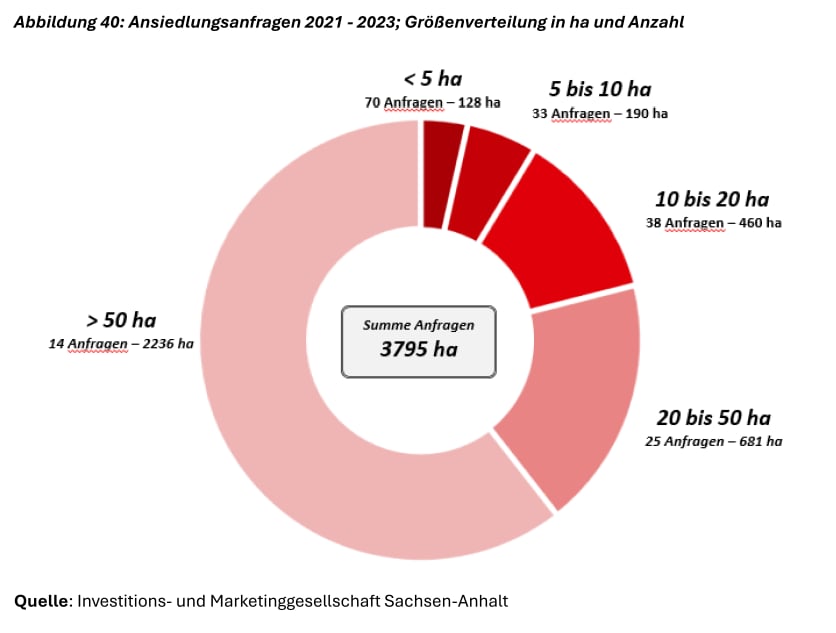
It must be stated clearly: these inquiries are non-binding. The companies involved are undoubtedly making similar inquiries in other German states—or even elsewhere in Europe or globally. The final decision to establish a location depends on many factors, not just on whether suitable land is available. And this is the crucial point. Over 100 of these inquiries relate to plots between less than 5 and up to 10 hectares. Such areas are already available in the Burgenlandkreis region. For example, anyone driving up Käthe-Kollwitz-Straße in Weißenfels will see undeveloped land between two car dealerships. Other similar spaces are also readily usable. Zorbau’s commercial zone also still has free plots. Anyone spending a little time on Google Maps can find many unused commercial areas. Why Are These Spaces Still Vacant If Demand Is So High?If the counter-argument is that these areas are commercial zones rather than industrial zones, that can easily be resolved. A city council resolution is all it takes to reclassify a commercial zone as an industrial zone. The areas currently intended for the IKIG are agricultural land and would be reclassified via resolution. It’s simply a matter of political will.Certainly, someone might argue that different standards apply to industrial versus commercial zones. But if a company that qualifies as "industrial" poses no significant noise, emissions, or groundwater contamination risks, there should be no issue for a city council to approve it accordingly. 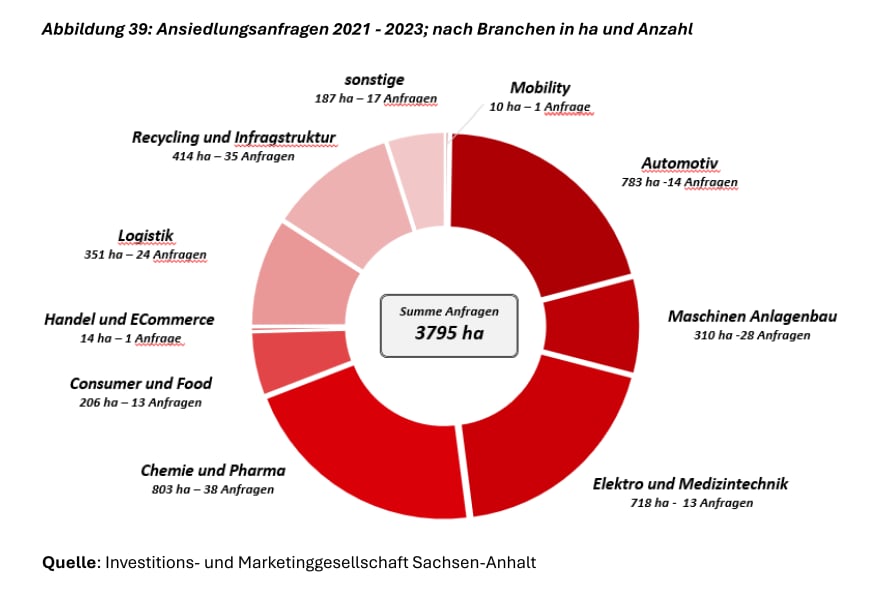
Which Companies Are Actually Wanted in the IKIG?Companies needing very large plots will not be considered for the IKIG. The plan is to attract smaller firms. However, logistics companies, mobility providers, automotive companies, or those in retail/e-commerce are also not welcome. That leaves only a tiny fraction of the 2021–2023 inquiries as potentially eligible—assuming all other crucial factors for such companies align better here than elsewhere in Germany, Europe, or the world.And let’s be clear: These inquiries refer to the entire state of Saxony-Anhalt—not just the Burgenlandkreis region. So the logical conclusion is not a lack of land, but a lack of companies actually interested in establishing themselves in this region. 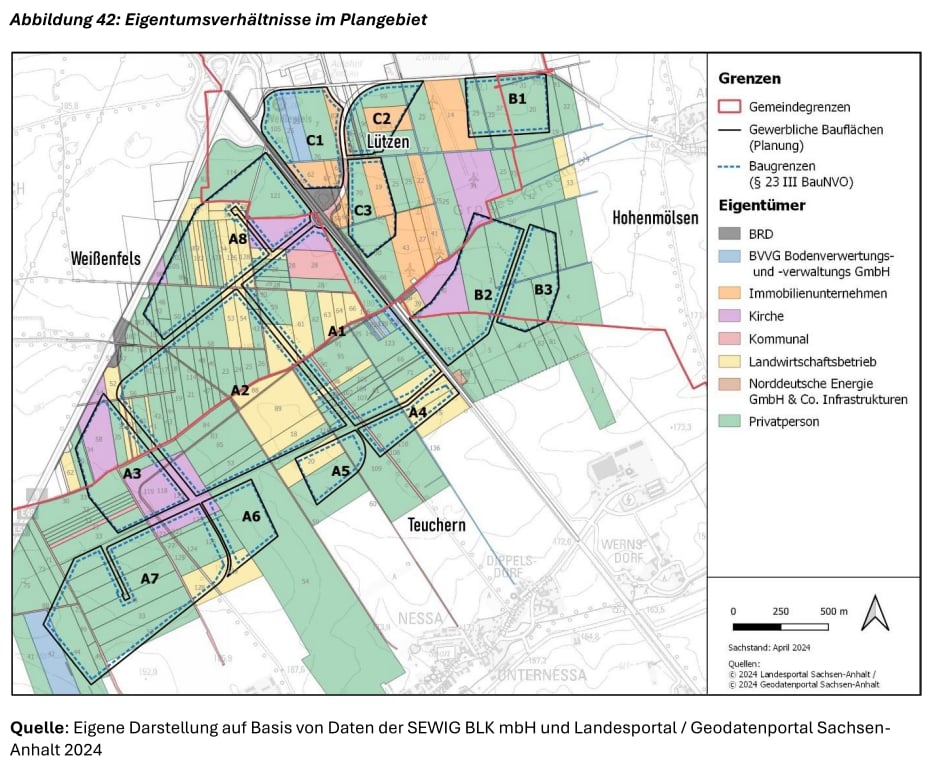
Land AllocationThis map shows which land areas would belong to which cities and in what order they would be developed, since development is intended to occur gradually. Plots A1–A8 belong to Teuchern and Weißenfels, B1–B3 to Hohenmölsen, and C1–C3 to Lützen. Development would begin with A1, B1, and C1.Lützen and Hohenmölsen Don’t Actually Need the IKIG StructurePlot C1 technically belongs to the Zorbau commercial zone (City of Lützen) and could have been used long ago. Developing C2 and C3 should also pose no challenge since they lie directly by the road. That it hasn’t happened yet suggests either no interest or failed inquiries. The same likely applies to B1. In short: Lützen and Hohenmölsen do not need the IKIG to utilize these plots.Teuchern appears to stand to gain the most land—if full development occurs. The final area to be developed would be A8, part of Weißenfels. According to current plans, tax revenues from the IKIG—should any companies actually settle there—would be shared among the involved cities. 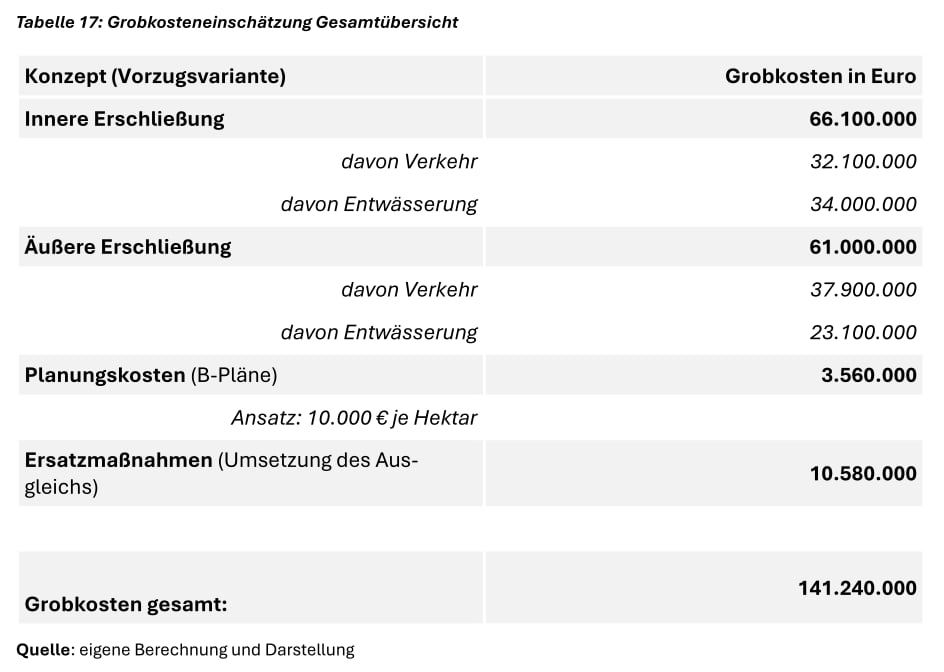
Estimated Investment: €140 MillionIt is unclear why developing the IKIG infrastructure (roads, sewage, water, electricity, telecommunications, plus compensation areas) is projected to cost up to €140 million.Fantasy Land Prices—and the End of IKIG?Weißenfels City Council resolved on November 7, 2024, that no expropriations would occur for the IKIG—meaning landowners cannot be forced to sell at official land values. This opens the door for astronomical asking prices. But which company in its right mind would pay such prices to settle there? Further complicating things: each area has multiple owners. If just one refuses or demands an unreasonable price, development may stall entirely. No matter what the councils of the four cities decide regarding the administrative consortium, the landowners ultimately hold the power.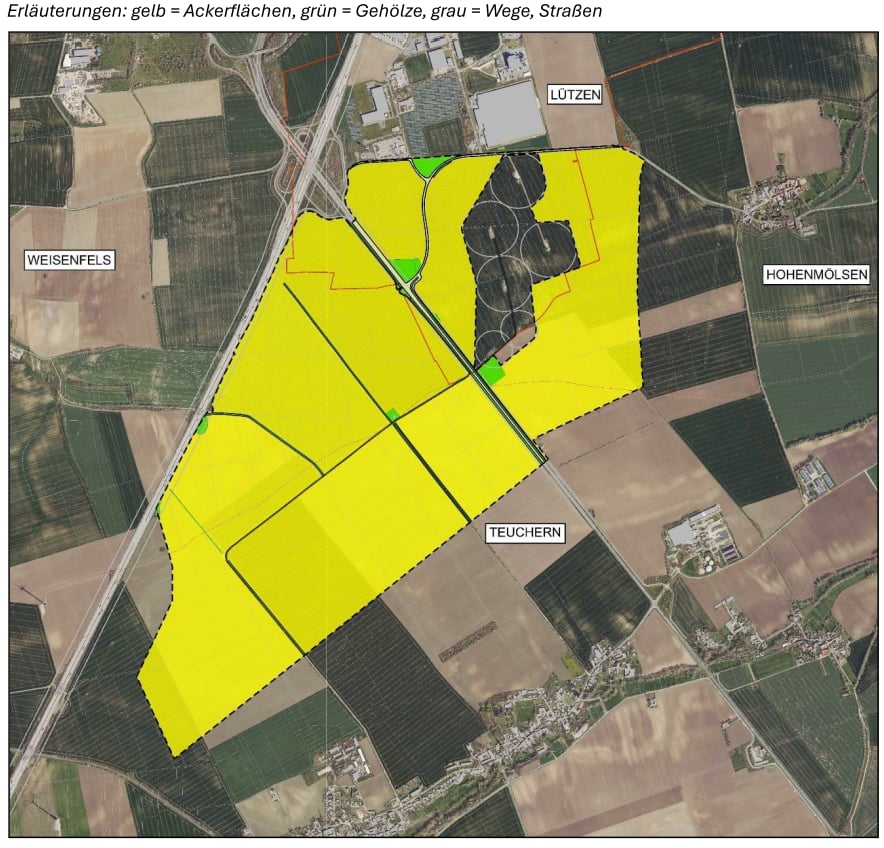
Ecological and Ideological MadnessA particularly astonishing comment came from Weißenfels CDU councilor Föhre, who claimed that the agricultural land slated for destruction wasn’t needed—since grain could just be imported from Ukraine. What she apparently failed to realize: Ukrainian agriculture does not adhere to EU or German standards. For instance, pesticides banned in the EU have been found in Ukrainian grain. Additionally, Ukraine remains a war zone—a conflict that German politicians show no interest in ending. CDU leader Merz even wants to escalate it. War leads to the loss of farmland.The climate change narrative claims that farming will become more difficult due to global warming. Droughts and floods will reduce yields. Food shortages loom. According to DESTATIS, 735 million people worldwide suffered from hunger in 2022. Therefore, it is both ecological and ideological madness to render high-quality farmland unusable—at enormous public expense—allegedly to combat climate change. Why Aren’t Alternatives Being Considered?If there truly is a lack of industrial land, exploring alternatives would be the rational approach. One idea—frequently raised at demonstrations in places like Teuchern—is to repurpose the Hohenmölsen open-pit mining area into an industrial zone. The area is far larger, already environmentally devastated, and offers existing railway infrastructure. Extending the new road from Hohenmölsen to the A38 would suffice—perhaps including a bypass around Starsiedel. A link to the B91, south of Hohenmölsen, to improve access to the A9 would also be feasible.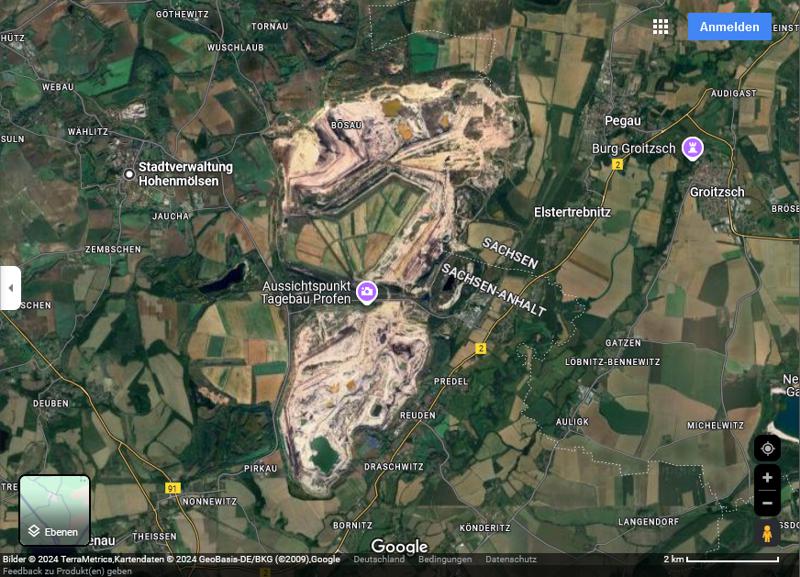
The step-by-step development approach proposed for the IKIG could already be implemented there. Workers from Weißenfels, Teuchern, Lützen, or Zeitz could reach such a site in 15 minutes. Residents of Hohenmölsen could even bike there. Land ownership would be simplified if the plots belong to MIBRAG. If MIBRAG is unwilling to sell, leasing could be a viable alternative. One objection previously raised was that mining law applies to the area, making industrial development impossible. The reply heard at the Teuchern protest was clear: Change the mining law! Politics can do that—if it wants to. Is This Just About Subsidy Money?Why is there such aggressive pressure to push through the IKIG? Why aren’t alternatives studied with the same energy and budget? Why isn't it examined which available plots remain unused and why? It gives the strong impression that this is all about accessing up to €140 million in subsidies.If the argument is that this money is available *only* for the IKIG, why not talk to the funding authorities and explain that better, greener alternatives exist? Especially since affected communities are supposed to be shaping the structural transition. Is It a Lack of Courage and Imagination?Is it a lack of ideas, creativity, courage? Or do the city councils simply want to be able to say someday, “Well, at least we tried. What more could we do?”Author: AI-Translation - Redaktionsteam | 23.11.2024 |

|
| Other articles: |
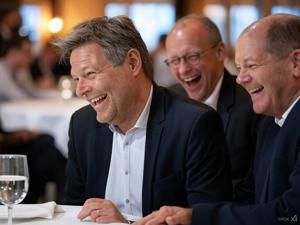 | They Are Breaking Their Election Promises Even Before the ElectionYou see them everywhere right now – the promises about how everything will get better once they are back in government. But it is already clear that these promises – to put it ... zum Artikel |
 | Applause for Mask WearersAbout the meaningfulness and "protective effect" of masks. Recorded on April 9, 2022 in Hohenmölsen on the occasion of the traveling exhibition of the Citizens' Voice and a demons... zum Artikel |
 | Firewall Meets Fire Alarm in Pedestrian ZoneA possible encounter in the pedestrian area.... zum Artikel |
|
Support the operation of this website with voluntary contributions: via PayPal: https://www.paypal.me/evovi/12 or via bank transfer IBAN: IE55SUMU99036510275719 BIC: SUMUIE22XXX Account holder: Michael Thurm Shorts / Reels / Kurz-Clips Imprint / Disclaimer |